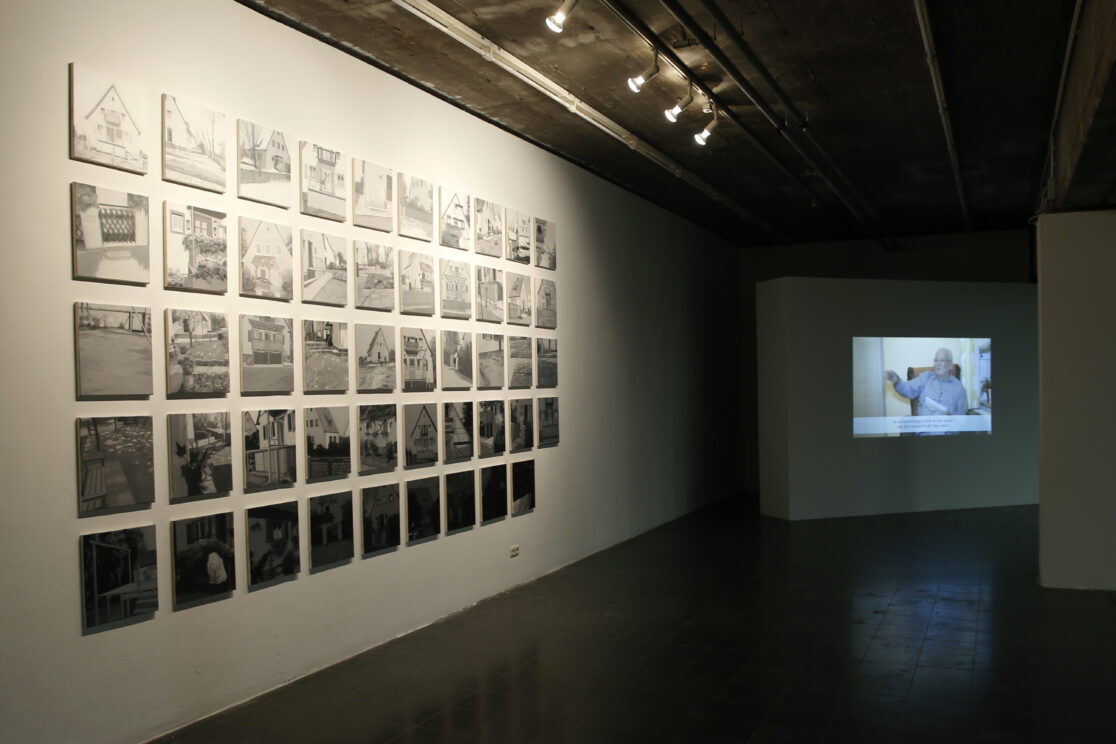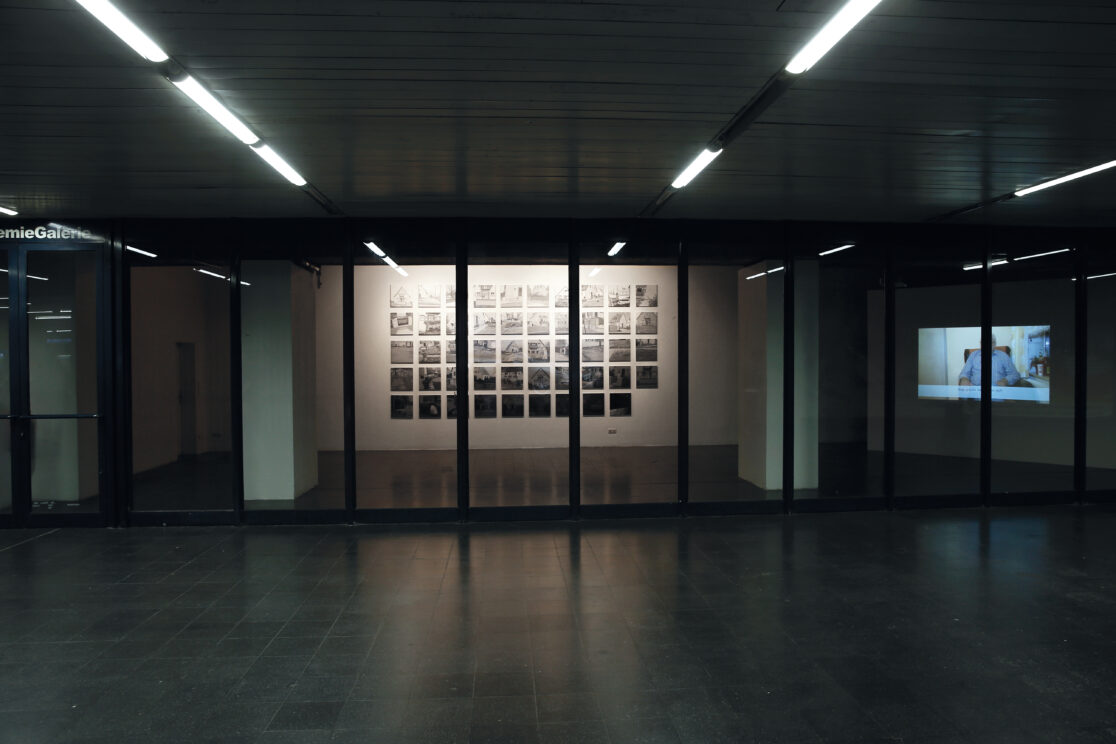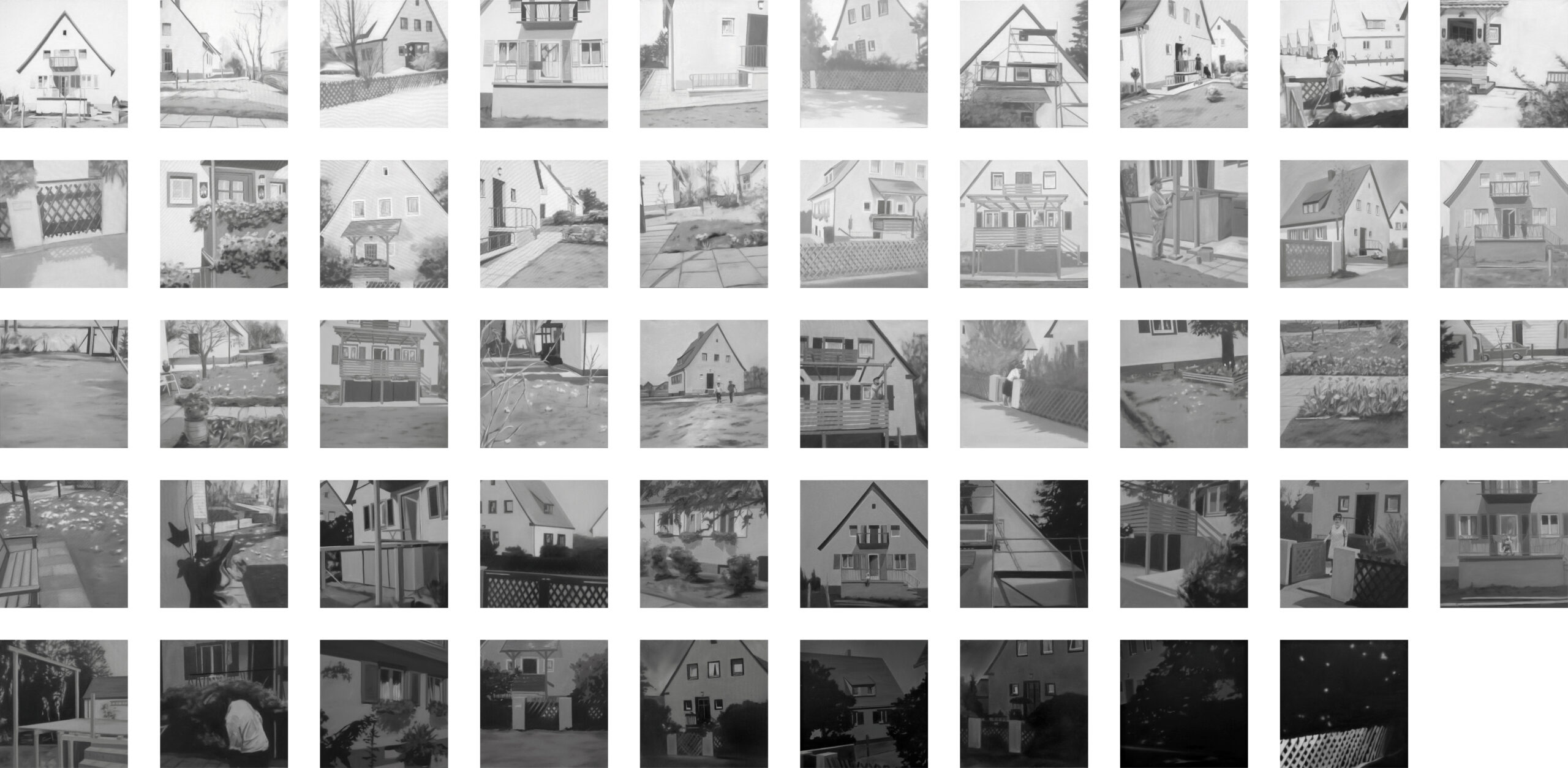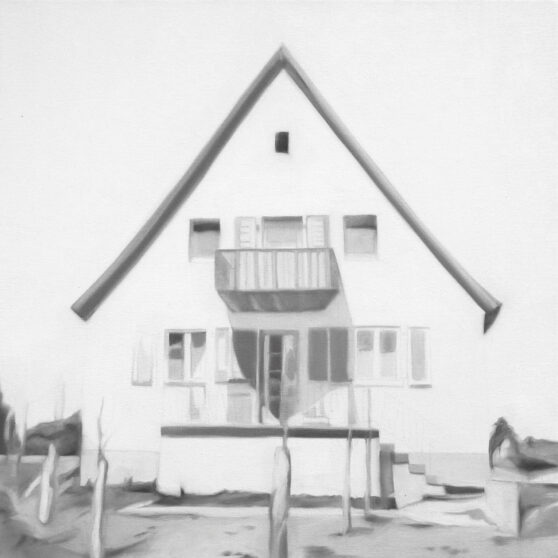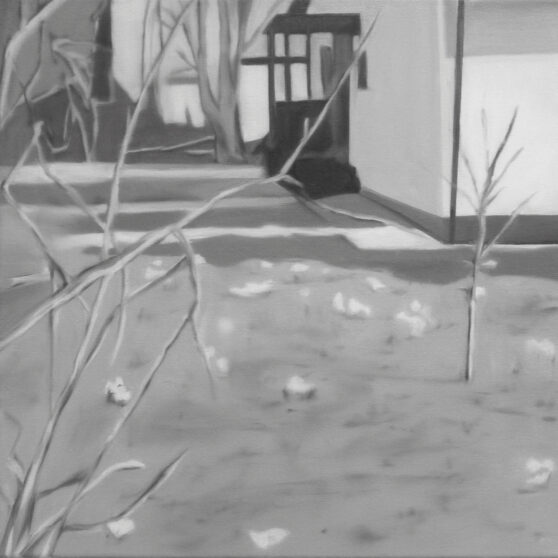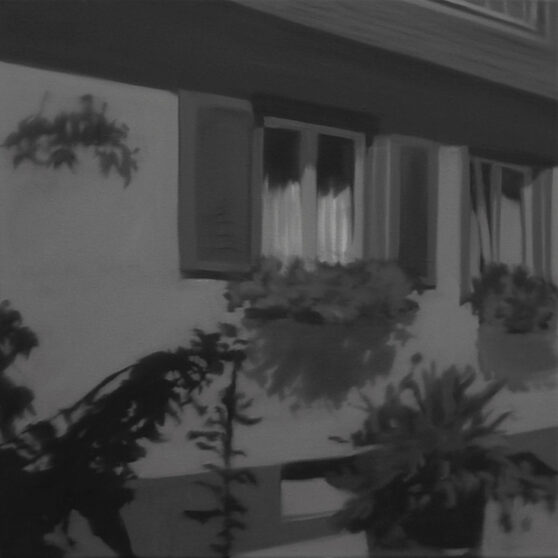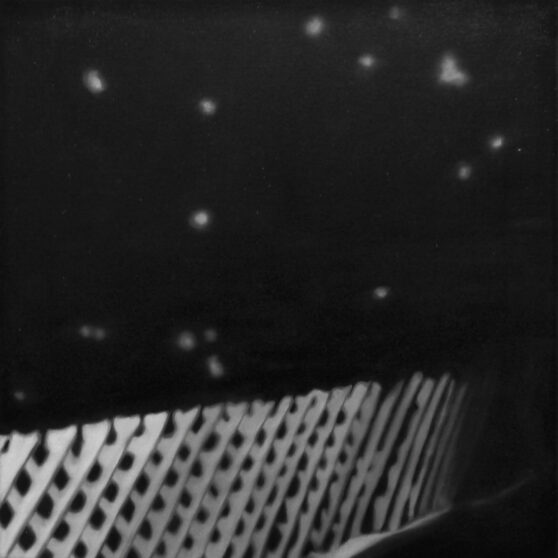home away from home 2014
‚home away from home‘ explores concepts of ‚Heimat‘, which has a spatial, temporal as well as a cultural and social dimension.
The German word ‚Heimat‘ does not fully translate to English. ‚Heimat‘ describes the relationship of a person to a spatial and social unit, for example the place where someone was born and had his first socialization experiences. It also relates to the regional identity of a person. ‚Heimat‘ usually has a positive connotation. It describes the opposite to alienation and foreignness. It could be translated with ‚home‘ or ‚homeland‘, but both words do not cover all aspects of the German word.
‚Heimat‘ is particularly important to many people, but can change and alter over the years and as a feeling remains intangible.
My work consists of 49 oil paintings (40 x 40 cm each), which originate from 49 photographs, which my grandfather - an exile – had taken of his self-built house in his ‚neue Heimat‘ (new homeland) during almost half a century.
The second part of the work is a video in which my grandfather, who then suffered from dementia and lived in a nursing home, talks about what he perceived as ‚Heimat‘ and what was and is important to him to feel home.
Being an exile, my grandfather‘s self-built house always was the center and pride of his life. In the 49 years he lived in it, he had rebuilt, improved, renovated, and refurbished the house again and again and planted the garden. No other motif is found so often in his photo collection. ‚Heimat‘ always was an important subject for him and my grandmother. Especially the ‚alte Heimat‘ (old homeland) in the Czech Republic, from where both of them were expelled after the Second World War.
Due to his dementia, my grandfather had no longer been able to live in his house all by himself. So in 2010 he had to move to a nursing home.
Hereupon the house was sold and rebuilt - so this home only existed in the memory of my family and the fading memory of my grandfather. At first he was very miserable and felt homesick. With time, however, it seemed to become less and less important to him. Other things gained priority. He felt „at home in the (nursing) home“ (‚daheim im Heim‘) as he said, and was content.

